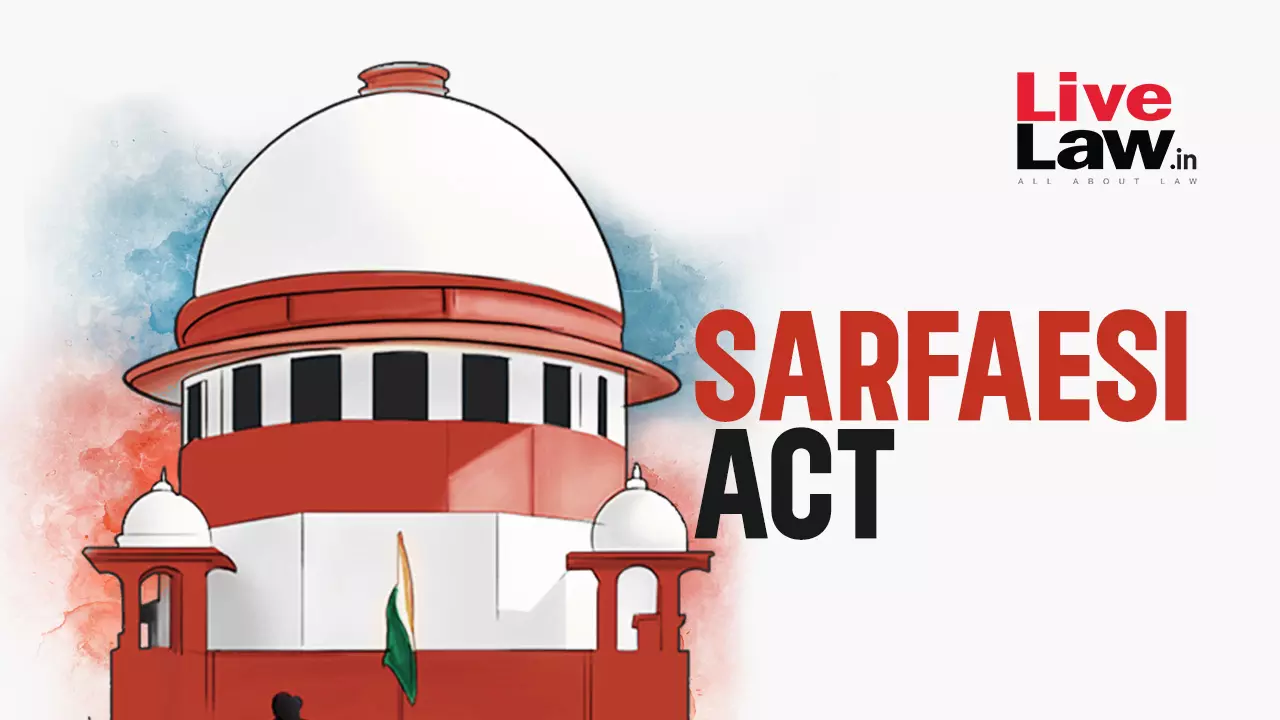SARFAESI Act | 2016 Amendment To S. 13(8) Applies To Pre-Amendment Loans If Default Occurred After That: Supreme Court
LIVELAW NEWS NETWORK
22 Sept 2025 6:30 PM IST

The Supreme Court held that the 2016 amendment to Section 13(8) of the SARFAESI Act, which extinguishes a borrower's right of redemption once the secured creditor publishes an auction notice, will apply even to loans taken before the amendment came into force, provided the default occurred after September 1, 2016(the date when the amendment came into force).
A Bench of Justices J.B. Pardiwala and R Mahadevan rejected the contention of borrowers that since their loan was obtained in January 2016, the unamended Section 13(8) - which gave borrowers the right of redemption till the actual transfer of secured asset took place - would govern their rights. The Court held that the amended provision was applicable because the loan account was declared a non-performing asset (NPA) only in December 2019, and the auction notice was issued in January 2021, well after the amendment came into force.
"We do not find any merit in the principal contention raised on behalf of the borrowers referred to above. The amended provision extinguishes the right of redemption of the borrower in the event he fails to repay his dues and redeem the asset before publication of the Auction Notice. This unambiguous language used in the amended provision of Section 13(8) furthers the object and reasons of the SARFAESI Act for which it was enacted i.e., to ensure that the lender is able to enforce his security interest at the earliest and with least possible intervention of the courts," the Court observed.
Rejecting the plea that the date of availing the loan should determine applicability, the Bench clarified that the right of redemption is a statutory right, not a contractual one, and is subject to modification by special laws like SARFAESI. The Court relied on M.D. Frozen Foods Exports Pvt. Ltd. vs Hero Fincorp Ltd and its own ruling in Authorized Officer, Central Bank of India v. Shanmugavelu (2024 INSC 80) to underline that remedial statutes like SARFAESI are intended to apply to pre-existing transactions to reduce non-performing assets.
"Thus, logically from the above, if the claim is alive on 01.09.16 when the Section 13(8) is amended and the notice for auction is issued after 01.09.16, then the amended section should apply otherwise an absurd situation would be created, that the Act which applied retroactively to "alive claims" prior to the Act coming into force on 2002, but the amendment in it like in Section 13(8) would apply prospectively. That would create absurd situations."
The judgment stressed that presumption against retrospectivity does not apply to laws concerned with procedure or remedies, and a purposive interpretation of Section 13(8) demanded that the 2016 amendment apply to all defaults occurring thereafter, irrespective of when the loan was originally sanctioned.
The Court summarised principles on retrospective application of legislations as under: -
(i) Presumption against retrospectivity is not applicable to enactments which merely affect procedure or change forum or are declaratory;
(ii) Retroactive/retrospective operation can be implicit in a provision construed in the context where it occurs ;
(iii) Given the context, a provision can be held to apply to cause of action after such provision comes into force, even though the claim on which the action may be based may be of an anterior date ; and
(iv) A remedial statute applies to pending proceedings and such application may not be taken to be retrospective if application is to be in future with reference to a pending cause of action ;
(v) SARFAESI Act is a remedial statute intended to deal with problem of pre-existing loan transactions which need speedy recovery."
Accordingly, the Court held that the borrowers' right of redemption stood extinguished on the date of publication of the auction notice in January 2021, and their plea to rely on the unamended provision was “completely misconceived.”
"Thus, the contention of the borrowers that their right of redemption has to necessarily be construed in accordance with the date of when the loan was obtained is completely misconceived. Any contractual terms of arrangement in respect of loan facility obtained will have no bearing or significance in respect of application of the statutory provision of the SARFAESI Act and the rules thereunder. Since the right of redemption under the SARFAESI Act, is nothing but a manifestation of the statutory provision."
In the judgment, the Court also highlighted certain anomalies in the language of Section 13(8), and Rules 8 & 9 of Security Interest (Enforcement) Rules, 2002, which led to a lot of litigation.
The Court urged the Finance Ministry to look into this aspect and make necessary changes. The Registry was directed to forward the copy of the judgment to the High Courts and the Finance Secretary.
Case : M Rajendran v M/s KPK Oils and Proteins India Ltd
Citation : 2025 LiveLaw (SC) 931
Click here to read the judgment


